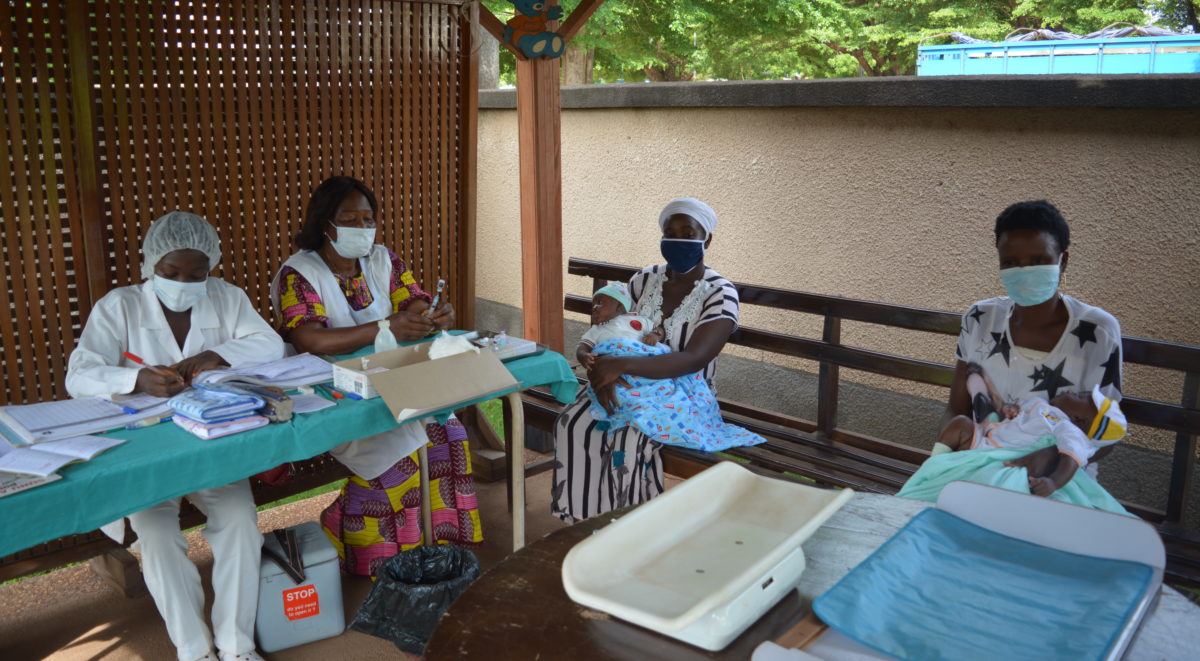
“Women, because of the central role they play in our society, are the most threatened by Covid-19,” reports Dr. Aye, director of the Walé Health Center, in Yamassoukro, Ivory Coast. “Our health care system is largely based on the free and invisible work of women. They are the ones who take care of our sick, our elderly and our children. Without their precious work, our health care system would not hold up.” Available data (source: U.N. May 2020) confirm that mortality rates from Covid-19 are higher for men, but the social and economic consequences for women are devastating.
Their inestimable contribution, as well as the dangers to which they are exposed, have already been greatly highlighted in the countries affected by the terrible Ebola epidemic, which had very serious effects on food insecurity. “Much of the economy rests on their shoulders; it is they who feed the nation, ensuring a good part of the agriculture that produces food. They are the ones who supply our markets with products from the garden we consume every day“; an economy that, however, is predominantly informal, with little protection against dismissal, no paid sick leave, limited access to social protection and which, therefore, collapses with the introduction of restrictive measures to contain the viruses.
“In Ivory Coast, compliance with preventive measures is still problematic. It is therefore serious that no specific action is being taken to raise awareness among women who play a fundamental role in managing relations in our society and are therefore today the main potential vectors for the transmission of Covid-19“. And precisely in response to this concern, the staff of the Walé Health Centre is strongly committed to awareness-raising campaigns aimed at women “because, duly informed, they have the power to contain the spread of the virus“.
As in previous pandemics, the social consequences of Covid-19 in Ivory Coast are particularly affecting women. “Many of our course participants in nutrition and hygiene courses have given up their jobs to find informal jobs to feed their families and are the first to give up medical care”. In addition, when families are under pressure for economic reasons, due to tight living conditions in isolation, domestic violence rates increase very quickly.
Therefore, for the Walé Health Centre, at this moment more than ever, it is not only a matter of responding effectively to the health needs of the most fragile sections of the population (those who are unable to meet the costs of medical care) but of taking advantage of this dramatic situation to carry out actions aimed at reducing the gender gaps whose progress achieved over the last ten years is in danger of being frustrated.
HARAMBEE SUPPORTS THE WALE HEALTH CENTRE IN RESPONSE TO THE COVID-19 EMERGENCY. JOIN IN, CLICK HERE TO DONATE NOW.
